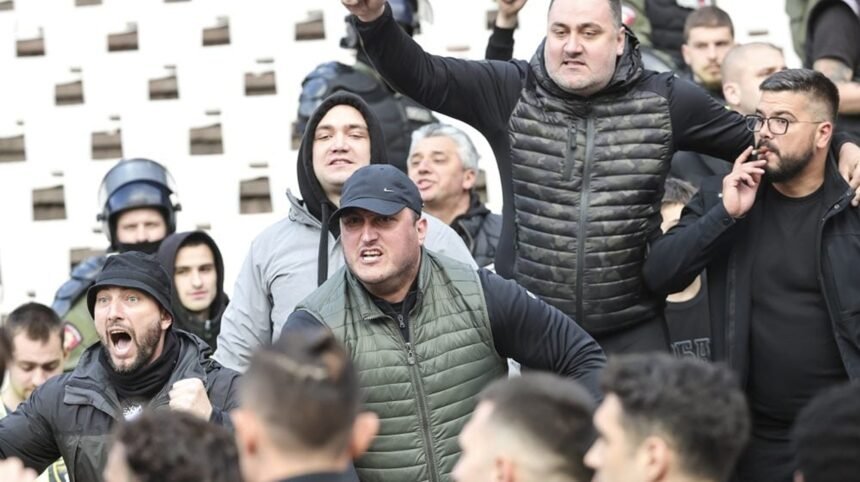Đorđe Prelić, a convicted murderer and one of the notorious leaders of Partizan’s fan group Alcatraz, has been revealed by CINS to have been hired for work at the EXPO project — raising serious questions about the oversight and integrity of public contracts in Serbia.
Prelić, convicted for the brutal 2009 murder of French fan Brice Taton, described his role in a CINS interview as “cleaning the construction site after completed works,” receiving roughly 1.2 million dinars through six invoices issued via his company, Cap 1 ALCZ, which he founded in June this year. He refused to disclose who gave him the job or share contracts, citing vague concerns for the government.
“I wouldn’t want to name anyone, since that text probably won’t be good for the government,” Prelić admitted, effectively pointing to a deliberate shielding of political actors who facilitated his employment.
Prelić is a figure with a documented criminal past, including prior convictions for serious bodily harm, illegal possession of weapons, assault on officials, and drug trafficking. Yet despite this, he has been openly attending events and meetings organized by the Serbian Progressive Party (SNS) this year, signaling a troubling tolerance or even endorsement of individuals with violent criminal histories.
On Statehood Day in February, he was filmed attending an SNS meeting in Sremska Mitrovica, and later appeared among SNS supporters at the so-called Ćaciland in front of the National Assembly — all of which he claims was for “patriotic reasons.”
The EXPO project itself has long been shrouded in opacity. Thanks to the lex specialis passed by the Serbian Parliament, public procurement laws do not apply, allowing contracts to be awarded without standard oversight. This exceptional status has now facilitated the employment of a convicted murderer at a high-profile national project — a development that is impossible to separate from the SNS’s political sphere.
Prelić himself admits that his public profile complicates his business, hinting that his ties to SNS-related circles have provided him with opportunities unavailable to ordinary citizens.
This case exposes a disturbing pattern: a party in power that not only tolerates the presence of convicted criminals in public life but appears willing to allow them to participate in state projects — normalizing a culture of impunity while undermining trust in government institutions.
Serbia’s citizens deserve transparency and accountability. Instead, through the SNS, a convicted killer is employed on a major national project and given a platform in political events, sending a chilling message that criminal pasts are no barrier to power and influence.







